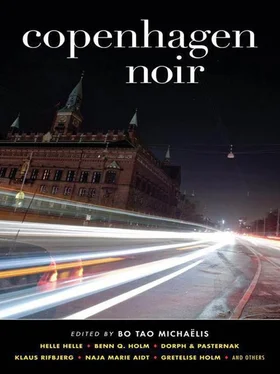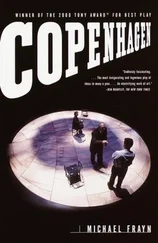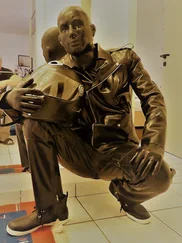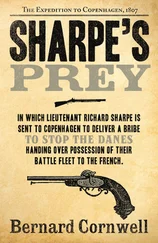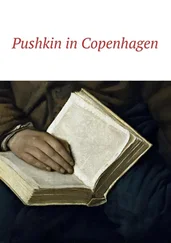Body and spirit.
The city is Malmø.
The year is 2008.
The old year left only senseless tragedies behind, incidents that could just as well have been stopped in time before the wheel of death started rolling.
Now it’s January. The month when everything stands in the balance. When everything is both too late and too early.
A series of deaths occur within a very limited time, and within a very limited geographical area.
Everyone is dumbfounded.
The general public. The police. The media.
The cruelty. The meaningless violence. The ominous sense of aggression. It has become like an itch that can never be stilled.
The press is full of meaningless speculations, not the least of which are supported by Alexander Hofman’s inflammatory editorials. There’s a rising sense of anxiety that always sets in when weaker groups become even weaker. Everything rolls along, takes on a life of its own. There’s a small part of the larger picture which at first you cannot see, a pattern not decodable at first. The light of truth is blinding, impossible to grasp.
A crime scene might very well be compared to an archeological excavation. You want to know what has happened and who is involved. There are clues, suggestions, a sense that something lies hidden.
The world is a riddle to be solved. We all become more or less suspect. Guilt is a disease, contagious, transmittable. He who turns his face away, he who starts walking faster, she who laughs off the facts, uncomfortably.
Nils Forsberg finished his letter to Father Pietro: There is no longer any reason for me to not say exactly, and I mean exactly, what I think. And that way is, as everyone knows, a blind alley. We lie because we don’t have the energy to tell the truth! Truth does not make us free, it makes us lonely.
Of course, a social and ethical explanation can be found to interpret the reasons why a particular person commits a crime. There are also psychological models. For Nils Forsberg the answer to the “Why” has crystalized into a “Therefore”: greediness, terror-because it was possible, because you could.
January is a month when everything hangs in the balance, when quick or well-thought-out decisions take on unknown consequences. To allow yourself to let go, or to deny yourself the right to act out your dark side. To kick someone lying down one more time, or to let it be. To jump out into it, or not to. Violence vibrates in the air: repressed hatred is like a dense fog rolling through all the alleys and squares of the city.
Life is unfair and cruel, and so is time. Cities grow, cities disappear, children grow older, stars fall and incinerate. Everything is in movement, the only constant is the actual feeling of meaninglessness. That we are on our way somewhere and that we don’t know why.
Between us, the living, there is a transparent wall. Stay or leave. We never touch each other, we just turn our faces away, look down at the ground.
In the end, that’s what it’s all about. That some disappear, while others stay around. That we are weighted down to earth, as though we are carrying an invisible yoke. The dead can be whirled off into time, be recreated, placed into some context, delivered the justice they are thirsting for, and then even the memory of them will be gone.
The final problem is, of course, that any kind of fundamental justice is lacking. That we cannot see the whole picture, only parts of it. That we grope for each other in the dark. And the murderer remains alone, blood singing in his body, images haunting him. He is who he is, he owns this bottomless thirst and this voraciousness that fills him. He knows it should not be this way, he also knows he cannot stop himself. It’s like an invisible wound that can never be healed, an itch you must not touch, and yet you cannot help yourself.
Is this how we become what we’re supposed to be? Nils Forsberg is doubtful, he still believes there is a hope for mercy, for change, that life is not static.
Nils Forsberg had crossed several boundaries in the course of his life. It was not a conscious choice but the sum of a series of events taking place beyond himself. It was possible that he once had been free to choose, but no longer. He’d given up, been tossed here and there, taken paths he had previously not even known were there.
Nils Forsberg had chosen to remain in his job, long after he should have left. When he should have left the dead to bury their dead, and he should have stayed with the living-and lived. The very first time he’d had to deliver the news of a death, he should have refused to pass on the information. He should have said that he could not be the messenger of the underworld, that the living and the dead should take care of each other, and leave him out of it.
But then who the hell would do it?
That’s how it always went. It was the responsibility. His feeling that he was more capable of dealing with the world than his colleagues. It was better that he did it than to have Nils Larsson come stomping into the home of the victims saying, “Your boy is dead, he fell onto the tracks…”
It’s all still there, all the thoughts and actions are there, deep down in him, buried in sediment. And every time he takes action the dregs are stirred up, just like when you throw a stone into water and everything muddies.
Now he was in a gray zone, neither alive nor dead, and yet-a bit of both. He looked at himself in the mirror in the bathroom and could hardly recognize the face looking back at him. At times he despised what he saw. New Year’s had passed, the nights were deep and dark, the days as short as a breath, gray and grainy. Nils Forsberg experienced a certain amount of pleasure in giving up, admitting defeat, with a tiny bit of self-pity mixed in. Tasting the whip of degradation! to quote his favorite author, Eric Hermelin, in one of his introductions to a book of Persian poetry. To summarize: in order to get back up you first must have fallen down. Forsberg had fallen down so many times by now, and he no longer had the strength to get back up. Nils Forsberg was a man who carried his story around with him, who was always telling and changing his life’s story. He was also a man whom no one wanted to listen to anymore.
The morning news in Malmø reports of break-ins in three nursery schools; four people are arrested in a stolen car; a twelve-year-old girl is chased out of her home by her own father-she runs crying around in the yard in front of the apartment building; a middle-aged man is found dead in a parked car on Östra Förstadsgatan. He sits with his head leaning against the steering wheel. The autopsy shows that he’s been dead for at least twelve hours before he was found, which means that he’s been sitting dead in his car during daylight hours on a busy street in the middle of Malmø. Everything is changing. Though we are as alike as only human beings can be, we are still strangers. The girl gets to sleep late in the afternoon, her father will stay away overnight, and the three break-ins at the nursery schools are never solved.
Death is waiting.
Death bides its time.
Everything is about waiting, about doors thrown wide open.
The only thing we can really know is that time measures us carefully, it waits until we have finished all we are here to do, all that is written with invisible letters in the book of life.
Time.
Drops of time, trickles of time. Time scratching, carving its deep lines in your face. Time for the poison to leave your body the same second it’s taken in. We’re like black flares in a world of sudden light. The soon to be dead get on the bus, log onto their online bank, wait for a traffic light to change. Everything continues as though nothing is going to happen. The soon to die take their stuff out from the pawnbroker, try to ameliorate a bad cold.
Читать дальше
